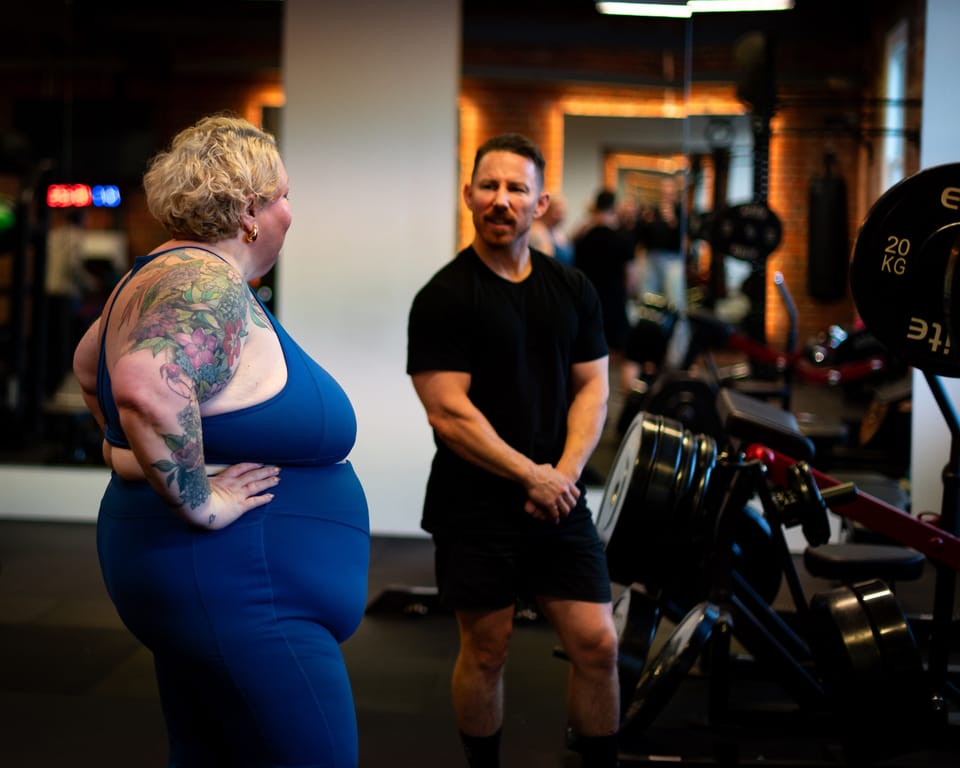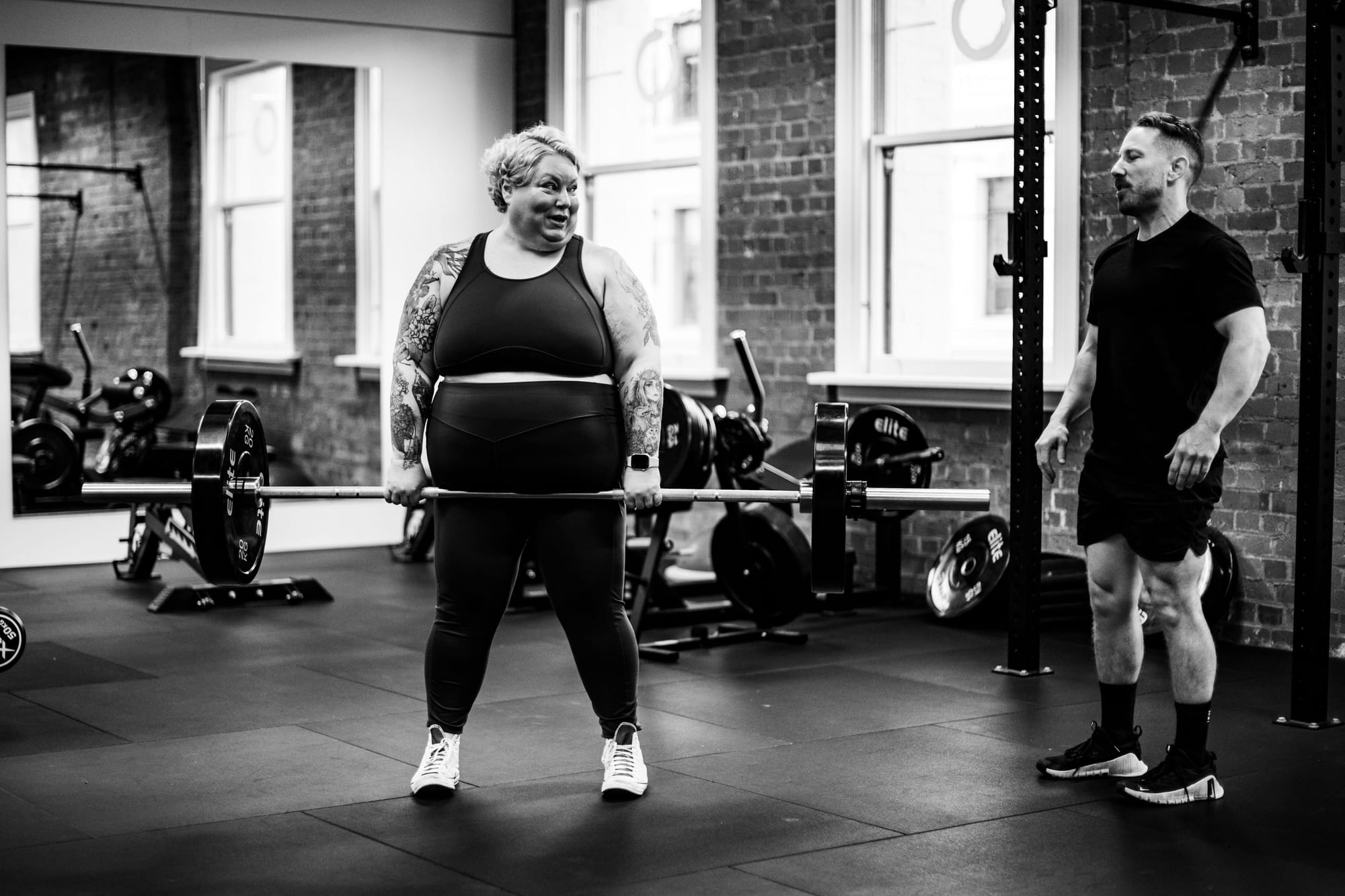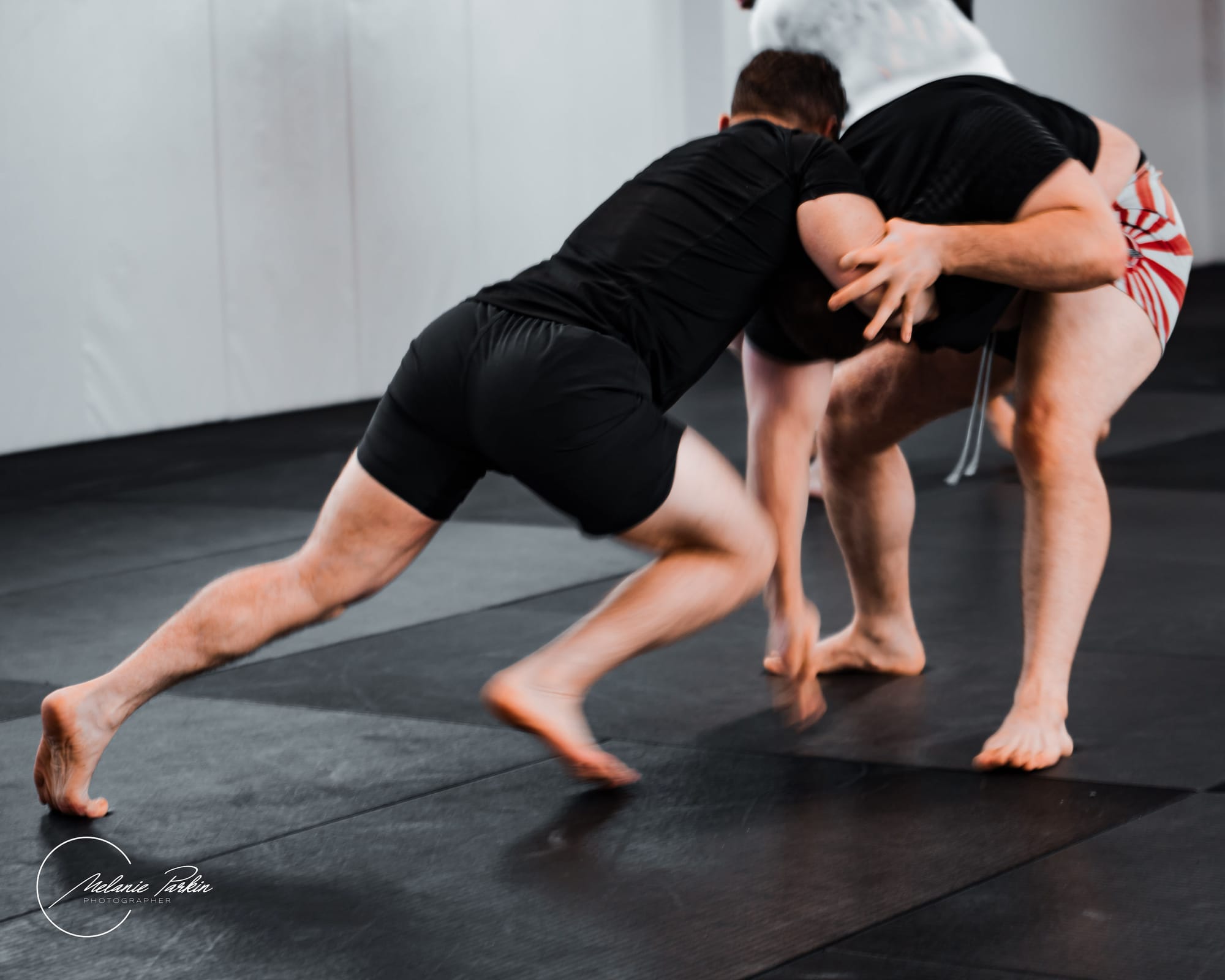Must I do Cardio?

Happy Saturday, whānau! Megan here.
I have to start this week with a confession: I’ve been cheating on strength training.
We’re about 6 weeks out from the competition, and I’ve barely picked up a barbell. My field of gains lies fallow. (Possibly salted by the ghosts of Aerobics Oz Style.)
Mon was right: the post-comp lull is real.
“It’s really common to feel—over the next few days or even the next week—like, ‘I never want to touch a barbell again.’ Not even compete—just lift. And it’s weird, because it hits after the fact.”
I’ve still been in the gym. I’ve still been working hard. But here’s the truly shameful part:
I’ve been doing cardio.
I feel dirty just saying it.
I know cardio lovers exist. I even have colleagues who voluntarily run marathons. Some people get endorphins from jumping and skipping. I do not understand these people. We may as well be from different species.
I remember, when I first started deadlifting years ago, I tweeted about my progress. A friend replied: “That’s great. Now you can call yourself a powerlifter and never do cardio again.”

And yet, here we are.
In recent weeks, I’ve been doing some boxing—1-on-1 with Carl, and in a class. I’ve done workouts Carl keeps calling “metabolic.” In one, my heart rate hit 151 bpm. There were gorilla rows. Kettlebell swings. Renegade rows. Jumping jacks. Push-ups. Hopping on the spot.
And here’s the most annoying part: I haven’t hated it.
I know. I don’t know what’s going on either.
Worse still, after one particularly grim session, Carl said, “Oh, I’ve learned something about your mental resilience today.”
I do not like the sound of that. It feels like a threat.
And, I hate to admit it, a lot of this was my idea.
It started when I realised I’ll be travelling around Europe and the UK for several weeks soon, and I want to do it without needing a nap every 30 minutes.
It was also partly inspired by an article I read recently, and my frustration with the assumption that everyone who works out wants to lose fat. The age-old question of “Should I do cardio first or last?” has been asked by lifters forever. Carl has probably read more research on this than I have, so I’ll let him weigh in shortly.
Even though I’m cheating on the barbell (I will bring it flowers, I promise), this is still entirely about my strength career.
I want to build power and endurance—and it turns out that being able to breathe is helpful when lifting heavy things. The more I can do in a session without wanting to die, the stronger I’ll get. Surely?
Also, I’m tired of my fitness tracker telling me my cardio fitness is low. (And also somehow in line with my actual age?)
And fine, yes, I should be thinking about my overall health, not just how many plates I can load on any given day.
So, we’re working on getting my heart rate up—and keeping it there—for more than one set of squats.
Which brings me to some questions for Carl:
- Is hitting the treadmill going to kill all my gains?
- How do we figure out the right ratio of strength to cardio?
- And seriously—what did you mean about my mental resilience?

Carl here:
Ok, so before I get to these great questions. ‘Do I really need to do cardio?’ The answer will totally depend on your goals. Do you want to be fit, live long and well, get lean and muscular, or do you have specific sports or performance goals? Understanding this first will guide that journey and cardio programming around this will be relative.
If your goals are general health and fitness, or longevity based, it seems as if the research suggests the answer is yes, you do really need to do cardio. Large cohort studies found that higher cardiorespiratory fitness (CRF) is associated with dramatically lower risk of death, in a graded, “dose–response” fashion. People with elite CRF (top 2.5% for their age/sex) had about a 5-fold lower risk of death compared to those with low fitness.
Even modest improvements (going from “low” to “moderate” fitness) reduced mortality risk by ~50%. How much and how intense you ask? It seems as though around 2.5 hours-5 hours per week of moderate to vigorous cardiovascular exercise will yield increased quality of life and lifespan (often referred to as healthspan) results.
Research also suggests that something as simple as walking can extend lifespan and wellness span. As little as 15 minutes per day can make a difference, even more so if you walk for longer and walk fast!
Now, the nuance….
If you are lifting weights, it doesn't mean you are not getting cardio! As explored in our previous newsletter, depending on how you are lifting (reps, sets, intensity etc) you are probably getting a cardio workout too! If you don't believe me, try this:
Strength circuit - complete one round back to back of these 3 basic strength exercises and monitor your heart rate (either by taking your pulse straight after or a smart device.
10 x bodyweight (or appropriately loaded) squats
10 x alternating lunges (appropriately loaded and if available)
10 x push ups (knees or full body)
If your heart rate increases (it will), you are also doing cardio!
Now to question 1: Is hitting the treadmill going to kill all my gains?
To clarify, Megan is wondering whether doing extra cardio training will eat away at that well-earned muscle!
In short…it depends.
It depends on the type, intensity, timing and frequency of cardio training! If it's a moderate amount of cardio supplementing resistance training, then probably not!
It turns out that long, high volume cardio training may not be so good, as may be an ‘interference effect’. Which means that the biological pathways involved in this endurance training compete with the hypertrophy pathways. This is particularly noticeable when done within the same session, so consider splitting these apart if they are both important to you. With moderate cardio training, not so much, so chances are, you will be ok with both!
Long-distance running may be one of the modes of cardio to avoid if you want muscle gains, as it basically damages muscle the most, with the eccentric (breaking in landing effect on muscle) muscle damage and energy demands required. So, consider trading in the treadmill for a bike or even a set of swimming trunks if you want to maintain gains and do some longer cardio.
At the other end of the spectrum, we have high-intensity interval training (called HIIT). This may actually be beneficial for hypertrophy goals as the fast twitch muscle fibers are recruited and the metabolic stress may trigger muscle growth.
So in summary: Cardiovascular training may kill gains if done in large volumes or poorly timed, but when programmed smartly (e.g., cycling, HIIT, or moderate cardio done separate from lifting), it doesn’t significantly interfere and may even enhance recovery and hypertrophy.
2. How do we figure out the right ratio of strength to cardio?
I'm going to start this answer with another very grey response. It will depend on your goals…

If it's important to you to have good muscle and strength whilst maintaining good cardiovascular fitness and wellness, then the ratio will be in favour of weight training. If you really want to be fit for whatever reason but want to just maintain muscle mass, then the ratio may be in favour of cardio training. For my hybrid/wellbeing-based goals, I try to hit the guidelines that we outlined in this newsletter and be quite evenly spread. Here is how it may look depending on your goals:
Ratios by Goal
- Longevity + Healthspan Focused (general population):
- Weights: 2–3x/week
- Cardio: 3–4x/week (mix of moderate + intervals)
- Ratio ≈ 40% weights / 60% cardio
- Hypertrophy / Strength Focused:
- Weights: 4–5x/week
- Cardio: 2–3x/week (low-to-moderate, short HIIT or cycling to limit interference)
- Ratio ≈ 70% weights / 30% cardio
- Balanced Hybrid (muscle + heart, best of both worlds):
- Weights: 3–4x/week
- Cardio: 2–3x/week
- Ratio ≈ 50/50 split (time-wise, not session count, since cardio sessions may be shorter)
- Cardiovascular fitness focused;
- Weights: 1-2xp/week
- Cardio: 4-5xp/w
- Ratio: 70 % cardio / 30% weights
Probably the biggest consideration with any training is load management. What this means is considering the total load that your body and nervous system are under at this moment in time. Your body can only take so much, so if you are overdoing it in one or multiple modes, you can go backwards! This also considers the other factors in your life like stress, sleep, nutrition, hydration and more! We will get to this topic in another newsletter.
Please get some professional guidance around this, as there are a lot of considerations with programming and training!
Now to the final question: And seriously—what did you mean about my mental resilience?
Haha…well, you learn a lot about someone through exercise. What I noticed in you, Megan, during the ‘metabolic’ workout we did, was that you pushed through challenging moments often. I know, based on the devil eyes you gave me, that you felt like stopping, but you didn't, you kept going and got the work done. To me exercise is the best resilience training ground, you hear that whisper when it gets tough to give up. It might say ‘you've done enough now, it's time to go’ or ‘am I really going to get anything out of this extra set anyway?’. But when you ignore these whispers, that's when you grow - in more ways than one.
Resilience is defined by the ability to bounce back from adversity, or in positive psychology ‘to bounce forward from adversity’. We all know that sense of achievement and confidence that comes from pushing through those barriers. It bleeds into those other areas of your life and you find yourself walking taller, having courageous conversations or taking on challenges you may not have dreamed of in the past. That's what I’m talking about, and that's what you showed me! And yes, it's kinda a threat....
The best thing about resilience is that we can all get better at it and train it! The gym is a great place to start. When I ran my marathon with only 6 weeks of training behind me (not recommended!), it made me realise how far my mind could take me, as my body was beyond a level of exhaustion that I'd ever experienced previously.

Cool stuff we've seen:
Creatine is great - but buyers beware, what you are buying may not be what you want! Marketing experts claims don't always mirror the research and those gummies may not have what they claim in them! - Article here
100g of blueberries can boost brain performance, reduce heart attack risk by 32% and enhance insulin sensitivity all at once, according to research!
This meta-analysis suggests that lifting weights lowers body fat as much as cardio, but with better muscle retention.
